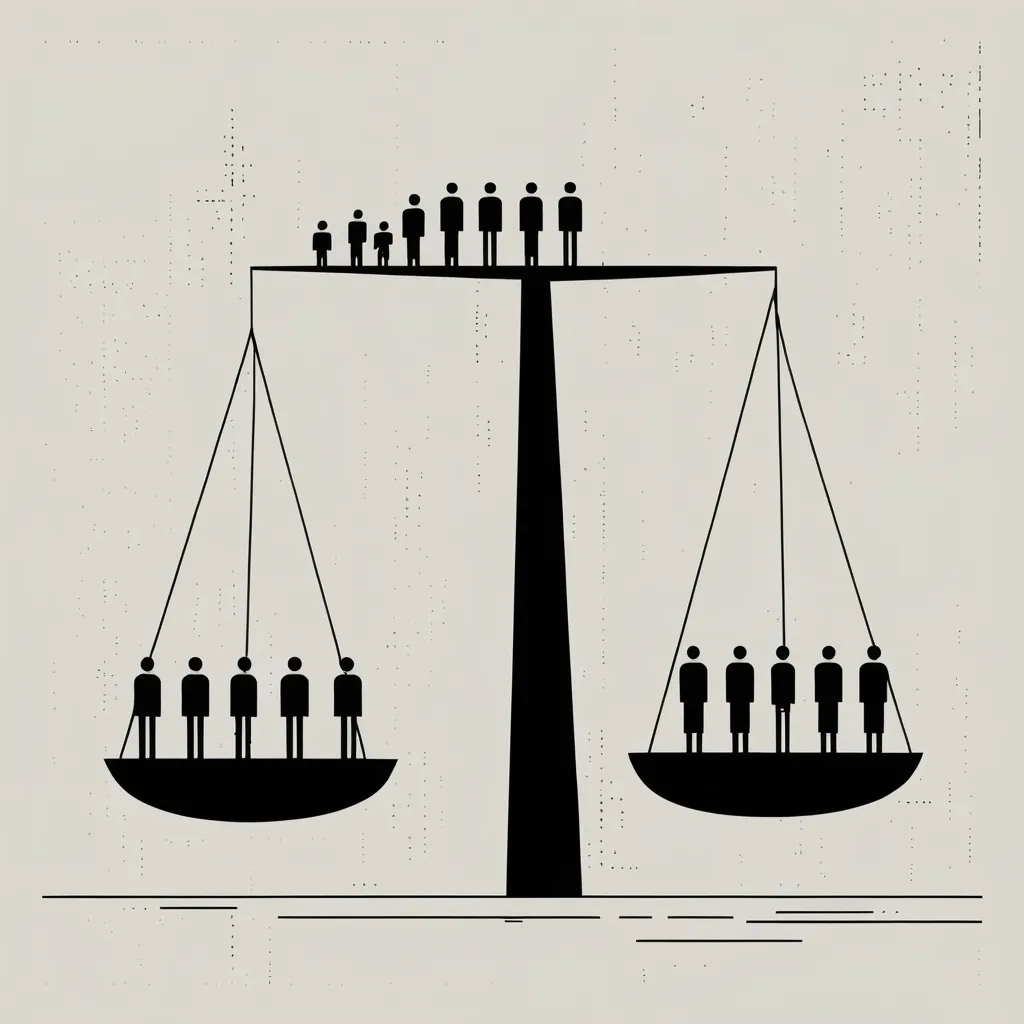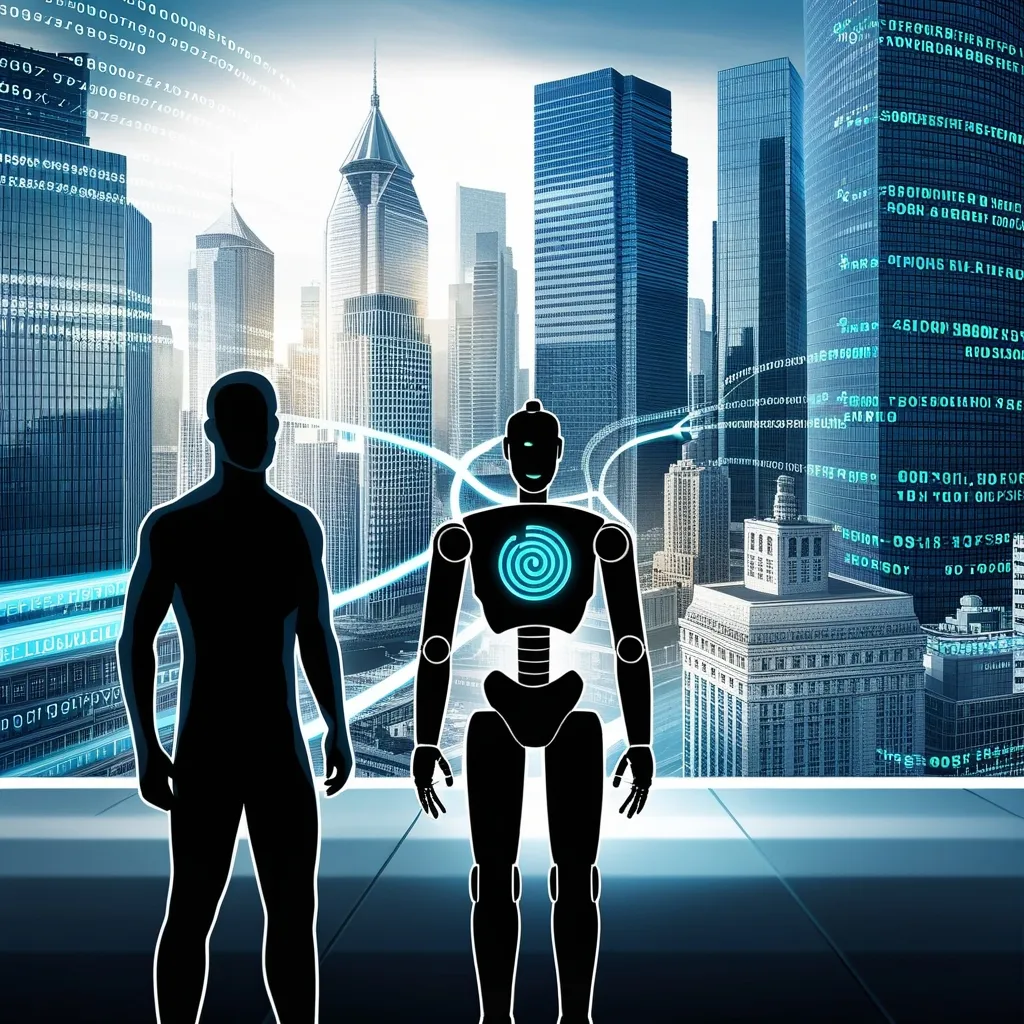Income Inequality and Political Instability: A Ticking Time Bomb
We’re living in a world where the rich are getting richer, and the poor are struggling to keep up. It’s not just about money anymore - this growing gap between the haves and have-nots is shaking up our political landscape in ways we can’t ignore.
Picture this: You’re working your tail off, barely making ends meet, while some bigwig on TV brags about their latest yacht purchase. Frustrating, right? That’s the kind of thing that’s pushing people to the extremes, making them reach for radical solutions to fix a system they feel is broken.
Let’s dive into this mess and see how income inequality is stirring up a political storm.
The Widening Wealth Gap
Remember when having a decent job meant you could afford a house, a car, and still have enough left over for a family vacation? Those days are fading fast. These days, it feels like you need to be a tech mogul or a Wall Street hotshot just to keep your head above water.
The numbers don’t lie. In most countries, the top 10% (and especially the top 1%) are raking in more dough than ever, while everyone else is fighting over the crumbs. The middle class? It’s shrinking faster than a wool sweater in a hot dryer.
Take the United States, for example. The average Joe’s income has been stuck in neutral for decades, even though the economy’s been growing. It’s like the country’s throwing a party, but most folks didn’t get an invite.
This isn’t just about money, though. When people feel like they’re being left behind, it messes with their heads. They start to question the whole system, and that’s when things get dicey.
Political Polarization: When the Center Can’t Hold
You know how family dinners can get awkward when Uncle Bob starts ranting about politics? Well, multiply that by a few million, and you’ve got a picture of what’s happening in many countries.
As the wealth gap grows, people are gravitating towards the political extremes. It’s not hard to see why. When you’re struggling to pay the bills, promises of radical change start to sound pretty good.
In Europe, for instance, far-left and far-right parties are gaining ground. They’re tapping into people’s economic anxieties, offering simple solutions to complex problems. It’s like political comfort food - it might not be good for you in the long run, but it sure feels satisfying in the moment.
This polarization isn’t just making Thanksgiving dinners uncomfortable. It’s making it harder for countries to function. When everyone’s shouting from opposite corners, who’s left to find the middle ground?
When Discontent Boils Over
Here’s where things get really messy. When enough people feel like they’re getting a raw deal, they stop playing by the rules. We’re talking protests, riots, and in extreme cases, full-blown revolutions.
History’s full of examples. The French Revolution? That wasn’t just about fancy wigs and cake. It was about regular folks being sick and tired of living in poverty while the aristocrats lived it up.
Fast forward to today, and we’re seeing similar patterns. Remember the Arab Spring? That wasn’t just about politics - it was about young people fed up with a system that offered them no economic hope.
It’s like a pressure cooker. Keep turning up the heat (or in this case, the inequality), and eventually, something’s gotta give.
The Importance of Strong Institutions
Now, here’s the thing: not every unequal society turns into a powder keg. The secret sauce? Strong institutions.
In countries with solid labor laws, fair courts, and functioning democracies, high inequality doesn’t automatically lead to chaos. These institutions act like shock absorbers, helping to smooth out the bumps caused by economic disparities.
But when these institutions are weak or corrupt? That’s when things can get ugly fast. Without proper channels to address grievances, people start taking matters into their own hands.
It’s like the difference between a well-refereed sports game and a free-for-all in the schoolyard. One might get heated, but it (usually) stays under control. The other? That’s how you end up with bloody noses and hurt feelings.
The Economic Fallout
Here’s the kicker: inequality isn’t just bad for social harmony - it’s bad for the economy too. When a society is split between the super-rich and everyone else, it’s like trying to drive a car with only one wheel. You’re not going to get very far.
High inequality can lead to all sorts of economic problems. People invest less in education (because why bother if you can’t get ahead?). Crime rates go up (desperate times, desperate measures). And social mobility? It becomes about as rare as a unicorn sighting.
Plus, when wealth is concentrated at the top, it creates a vicious cycle. The rich get richer, using their wealth to influence policies that keep them on top. Meanwhile, everyone else struggles to keep up. It’s like a game of Monopoly where one player starts with all the properties.
The Global Perspective
Now, zoom out and look at the big picture. Inequality isn’t just a problem within countries - it’s causing friction between them too.
You’ve got some countries where the middle class is growing (think China or India), while in others, it’s shrinking (hello, USA and parts of Europe). This global reshuffling is causing all sorts of tensions.
It’s like a global game of musical chairs, where some players suddenly find themselves without a seat. And when countries feel like they’re losing out, they might start looking for someone to blame. That’s how you get trade wars, isolationism, and other not-so-fun international drama.
The Human Cost
Let’s get personal for a moment. Living in a highly unequal society isn’t just economically tough - it messes with your head.
Imagine working your butt off, only to see others seemingly effortlessly living in luxury. It’s demoralizing. It’s stressful. It makes you question your worth and your place in society.
This isn’t just individual psychology - it affects entire communities. When some kids go to school hungry while others complain about their caviar lunch, it creates a divide that’s hard to bridge. It’s like trying to build a community when half the people are living on a different planet.
What Can We Do About It?
Alright, enough doom and gloom. What can we actually do about this mess?
First off, we need policies that level the playing field. This means things like:
- Strengthening labor laws to give workers a fair shake.
- Making the tax system more progressive (in other words, making sure the super-rich pay their fair share).
- Investing in education and healthcare to give everyone a shot at success.
We also need to tackle the concentration of wealth at the top. This might mean tougher financial regulations or breaking up monopolies. It’s about making sure the economic game isn’t rigged from the start.
But here’s the thing: this isn’t just about policy. It’s about changing our mindset as a society. We need to recognize that extreme inequality isn’t just unfair - it’s dangerous. It’s like building a house on sand. Sure, it might look nice for a while, but eventually, the foundation’s going to crumble.
Wrapping It Up
So, here’s the deal: income inequality isn’t just an economic issue. It’s a political powder keg. As the gap between the rich and the rest grows, it’s fueling social unrest, political extremism, and economic instability.
Addressing this isn’t just about being fair - it’s about securing our future. A more equal society isn’t just more just; it’s more stable, more prosperous, and frankly, more pleasant to live in.
Think about it: wouldn’t you rather live in a world where your success depends on your hard work and talent, not on whether you were born with a silver spoon in your mouth? Where political discussions are about ideas, not about us-versus-them?
It’s not going to be easy. Changing deeply entrenched systems never is. But the alternative - letting inequality continue to grow unchecked - is a recipe for disaster.
So next time you hear someone talking about income inequality, remember: it’s not just about numbers on a spreadsheet. It’s about the kind of society we want to live in, and the kind of future we want to build. And that’s something worth fighting for.






